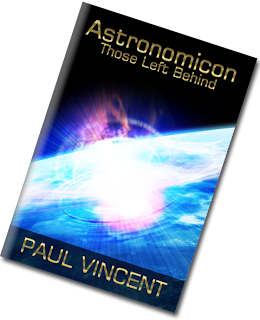I've always classified myself as a science fiction author. My first few novels were classic science fiction, or at least I thought they were. The fact that they form an on-going series of books, sharing a common scenario and characters pushes them into Space Opera, but then I write very accurate science with a decent attempt to realistically predict near future technology. That kind of makes my novels Hard SciFi.
For years I kept labelling my novels either Hard SciFi or Space Opera, but recently I am beginning to think I may have got it completely wrong. Yes I write epic, far-reaching stories with a large cast of characters and yes my stab at future technology is soundly based in current technological research, but those are NOT the most important aspects of my novels.
The science fiction is not the centre of the story or even the reason for it. Looking back, most of my novels would actually work just as well set in the 18th Century on board wooden ocean-going vessels. The stories would translate very well and there's very good reason for this.
 |
| Icarus |
At the core of my novels is not science fiction, but humans. Everything revolves around the characters, their aims, fears, loves, fights and struggles. I've had several people tell me they believe Astronomicon: Icarus is based on the movie Event Horizon. It wasn't. I cannot claim that there is no crossover there, but my book was actually devised after watching The Perfect Storm (which was almost an excellent movie). I wanted to write a version which fixed the problems and, as I tend to write scifi, I wrote it as a scifi novel. In the end it diverged quite substantially from the plot of The Perfect Storm and went very much its own way.
By constantly labelling my novels as science fiction, and some of its sub-genres, I am probably losing a massive chunk of my potential reader base. I know of about a dozen people so far who have loved my books who openly state they do not like science fiction. My books have elements of mystery, action, adventure and even horror in them. They all contain some humour and even a little romance in places. My latest novel, Deadline (soon to be published) even has two of the key characters getting married before the final chapter. I planned it as a science fiction comedy, but it could easily be described as the account of a relationship from first meeting to eventual marriage. Maybe it's a RomCom? (No I don't think so!)
My stories are human stories, which happen to play out in a science fiction background. Which genre should I file them in? I genuinely don't know any more.
.jpg)

.jpg)




.jpg)

.jpg)

